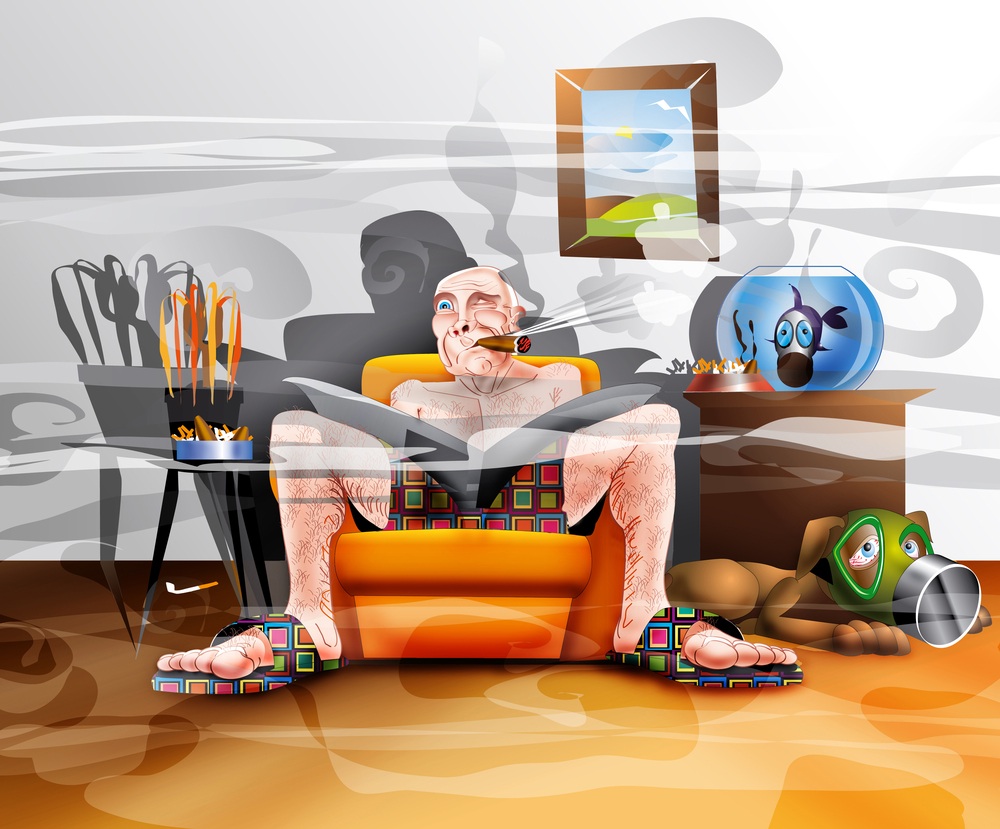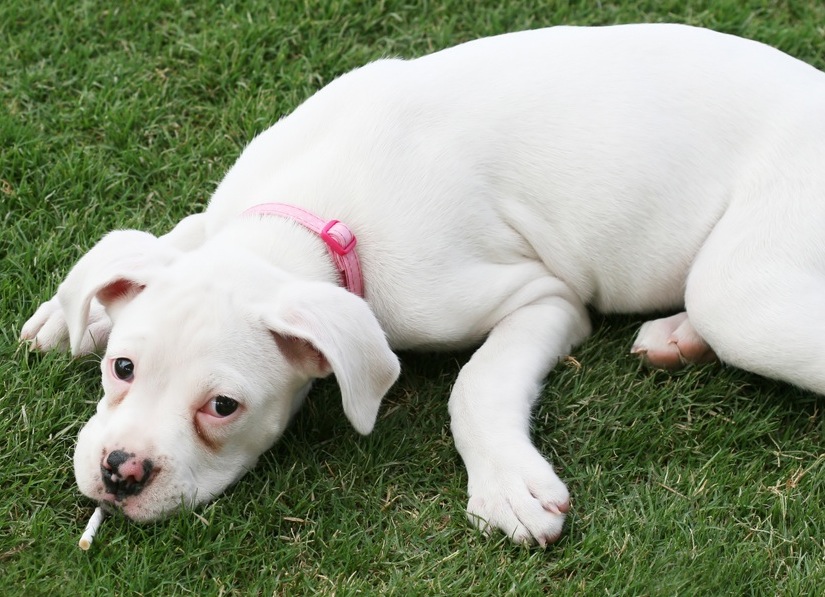Pets and passive smoking

There has been a lot of research published about the impact of passive smoking as far as people are concerned, but now, there is more information emerging about the dangers to pets as well. There can be over 4000 chemicals in secondhand smoke, of which 69 are known to be carcinogenic, and therefore capable of causing cancer.
Cats are considered particularly at risk, because of the way that they groom their coat, by licking their fur. Nicotine and tar residues are likely to be deposited here from their surroundings, and studies suggest that cats living in a home alongside a smoker are 2.5 times more likely to develop cancer of the lymph nodes - called lymphoma - than cats living in smoke-free homes.
Dogs are under an increased threat at well, particularly breeds such as greyhounds and collies which have long nasal cavities. They are at similar risk of suffering nasal tumours, while even flat-faced breeds like bulldogs are more vulnerable, living in a home with a smoker - their risk of suffering nasal tumours is increased by about 1.6 times.

It is not just smoke either. There is also the danger that dogs, particularly puppies, may die from nicotine poisoning if they gain access to a packet of cigarettes left within reach in the home, and start to chew up the contents. Just a single cigarette, which typically contains up to 30mg of nicotine, can be fatal to a dog. Cigars typically have a higher nicotine content - about 40mg.
A danger to all pet owners!
Also, don't automatically assume that just because no-one in your household smokes, your pet will be safe from this danger. There are plenty of discarded cigarette butts dropped in parks, which your dog may start eating. These butts contain about a quarter as much nicotine as the original cigarette, as it becomes concentrated here when the cigarette is smoked, so they are potentially very dangerous.
Signs of nicotine poisoning will include drooling and tremors, leading to twitching and ultimately seizures. Vomiting and diarrhoea are also likely, but vomiting may help to lessen the toxic effects of the tobacco, since it needs to pass out of the stomach first, before the nicotine can be absorbed into the body through the wall of the small intestine. Seek veterinary advice without delay, if you suspect that your pet has eaten tobacco.
Veterinary advice
Julian Peters, senior veterinarian at the Arthur Lodge Veterinary Group, headquartered in the English town of Horsham, East Sussex is concerned by what up until now has been a largely overlooked area of pet health.
“Many people only think of passive smoking in regard to humans, but it is just as much a concern for animals who live in a smoking household. As well as cancer, it can also be a factor in other respiratory diseases such as bronchitis,” he says.
“I would urge all owners to keep on top of health checks for their pets if they are exposed to smoke inhalations, helping their vet to spot early signs. This is particularly true for dental checks, which can pick up mouth cancer. It is also vital to keep up with brushing and grooming to remove any toxins from their fur. Try and keep nicotine-related products out of their reach as they can be quite curious creatures.”
Other pets

Nor of course is it just dogs and cats that are at risk from the effects of passive smoking. Birds have particularly sensitive respiratory systems. Their lungs are quite inflexible, compared with ours, and they depend on a series of air sacs which act rather like bellows, helping to drive the movement of air in and out of their bodies. They are very susceptible to atmospheric pollutants of any kind, including smoke.
In common with cats, birds spend a lot of time grooming themselves, particularly preening their feathers, and so are equally vulnerable to chemicals that are deposited here. Some people believe that passive smoking can be a cause of feather-plucking as a result.
Nor does it end there - guppies have been known to give birth to deformed young when tobacco smoke from the room has been drawn into their aquarium through an air pump.
If you need another reason to quit therefore, just think of your pets' health. Remember, they don't have a choice!